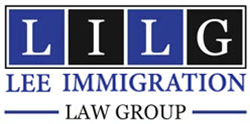The United States offers a path to citizenship for immigrants who meet specific requirements. However, this process can be complex, and individuals may face additional hurdles.
While the core requirements for naturalization remain the same, there are some challenges individuals applying for naturalization should be aware of.
Failing to meet eligibility requirements
Before anything else, you must ensure you are eligible for naturalization. You should be at least 18 years old, a lawful permanent resident (green card holder) for at least five years (or three years if you are married to a U.S. citizen) and have proven good moral character. You must also know how to read, write, and speak basic English, as English language proficiency is a requirement for naturalization.
Moral character flaws
As it is considered a criterion, you should be aware of your behavior throughout your time in the US. Immigration officers will assess your criminal record, your tax history and overall adherence to US laws. Unpaid taxes or certain crimes may jeopardize your application. These include the following:
- Aggravated felonies
- Illegal drug involvement
- Crimes in moral turpitude (inherently immoral act)
The U.S. Citizenship and Immigration Services (USIC) will consider your moral character during the application review, which is why it is crucial to have a clean record.
Lack of resources
Naturalization costs, such as application fees, legal representation, and language courses, can financially constrain some residents. You must know how to navigate these costs and understand the fee waiver options.
Another issue is the complexity of immigration laws. Lack of awareness or legal guidance often leads to delays and potential roadblocks in the naturalization process.
Because naturalization is complicated but incredibly important for many immigrants, there are numerous resources and support systems in place. Attorneys, social service providers and educators can all be incredibly helpful throughout this process, and working with them can ensure a smoother route to naturalization.
